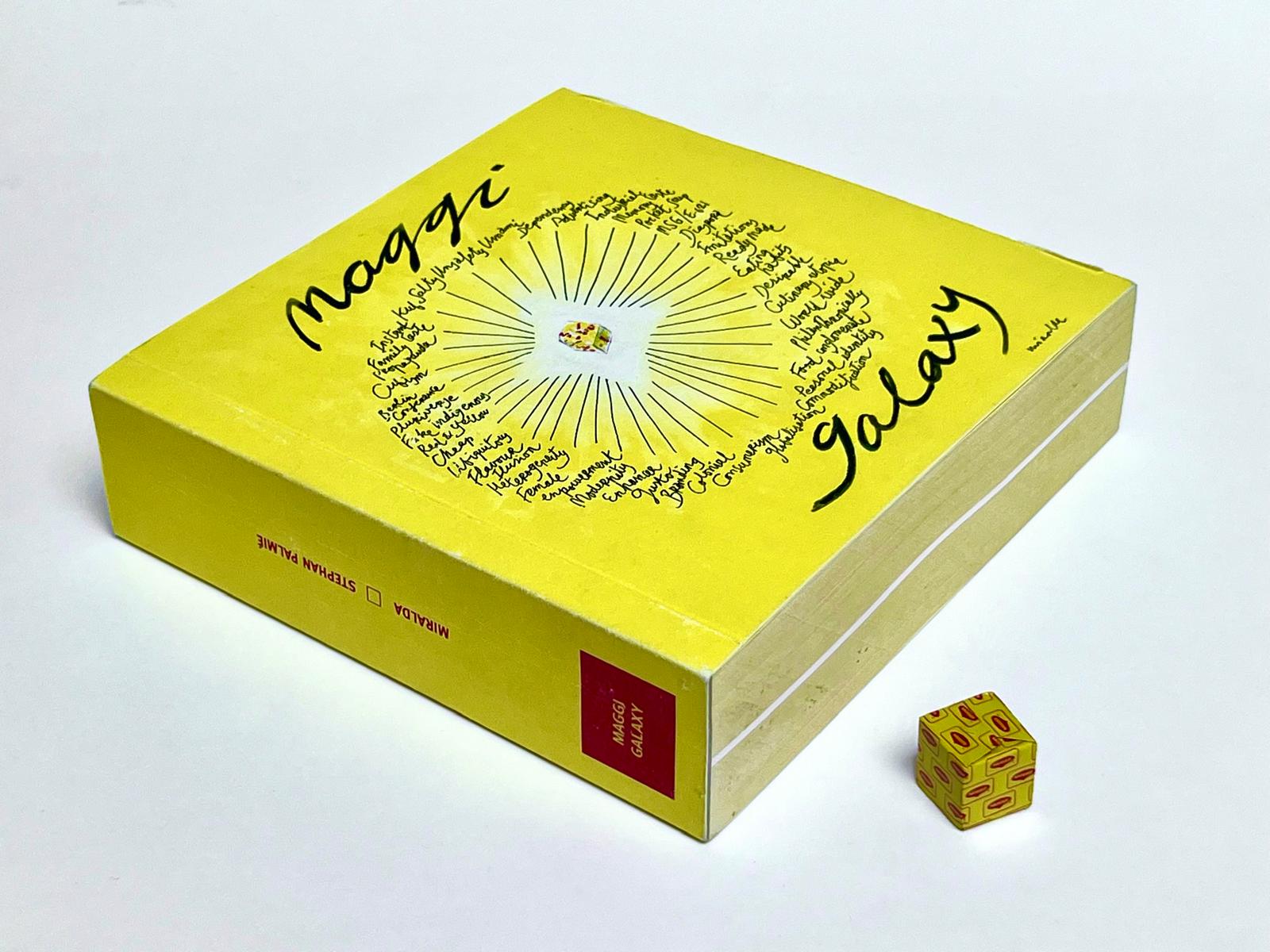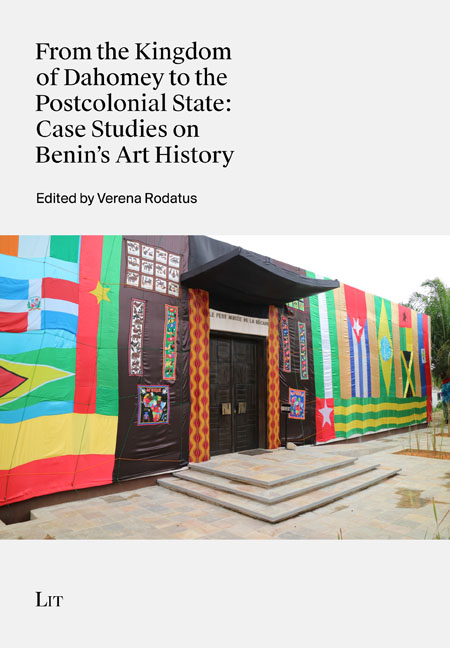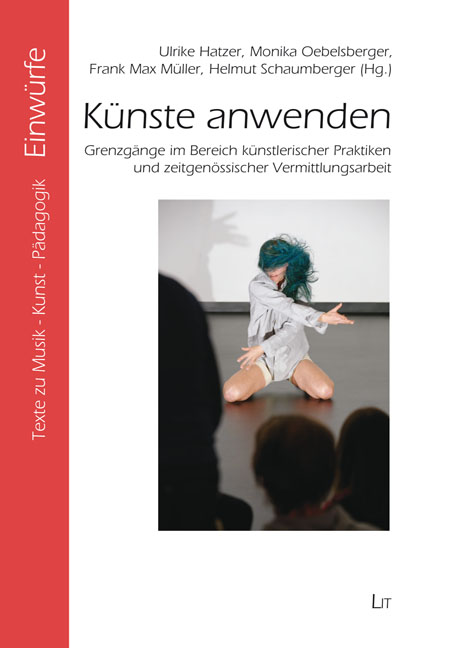LIT Verlag

MAGGI GALAXY by Miralda & Stephan Palmié
The book is a richly illustrated, multi-disciplinary exploration of the aesthetics and politics of an astonishingly globalized commodity: The Maggi bouillon cube.
TABLE OF CONTENTS
THROUGH THE PRISM OF A CUBE
Notes on the Maggi galaxy by Stephan Palmié
THE KUB & THE CUBISM by Jean Paul Morel
MIRALDA’S TI AYITI EVENT
The Maggic Banquet by Adriana Herrera
GOOGLEMAGGILANDIA
THE WHITE MAGGI by Aaron Denham
MAGGI FAMILY
The Maggi Family by Stephan Palmié
Maggi’s GDR Cousin:The BINO Story by Günter Matter
Other relatives
CORNUCOPIA
Maggoría by Jordi Gascón
-Graphics
-Supermarkets
-Packaging
-Worldwide recipes
MAGGI NEWS
News, anecdotes and memories inspired by Maggi.
ARCHIVE
-Le femme liberée
-Posters and Advertising
-Maggi vs Mies
-Art Gallery
The hidden/concealed face of the cube, by Yaiza Bocos Mirabella
ALBUM FOODCULTURA
Portfolio Bon Profit
CRONO MAGGI
---------------
The idea of a publication about Maggi was born during the preparations of the performance project The Maggic Banquet, held in Miami on February 10, 2018 and created by Miralda in collaboration with the chef José Casals, the students of the Miami Culinary Institute at Miami Dade College, and EXILE Books.
This food event was held in the neighborhood of Little Haiti with the participation of the community and celebrated the city of Miami's diverse cultural heritage while also tracking the culinary history of the Maggi seasoning brand. The event was about presenting and tasting food from the kitchens of various ethnic groups, all made with Maggi, in an altar-like buffet: crudités with onion sauce (New Zealand), black beans with fried plantain (Cuba), ham croquettes (Spain), chicken curry dumplings (Thailand), shrimp ceviche with Clamato (Ecuador), peanut butter (Chicago), among other dishes and nationalities. At the end of The Maggic Banquet, there was a processional walk through the neighborhood accompanied by the local Haitian Rara band.
In addition to celebrating Miami’s multicultural melting pot, with this work Miralda sought to explore the commodification and globalization of food and cultural traditions, as well as questions of identity, the “taste of memory”, and eating habits more generally. Since then, Miralda has begun to collaborate with the University of Chicago-based cultural anthropologist Stephan Palmié in editing the proposed volume.
"Maggi Galaxy", documents the event and expands our knowledge of the global proliferation of Maggi cubes from an anthropological, historical and artistic perspective. “Maggi Galaxy” contains various texts and essays from different authors who tell the story of Maggi seasoning’s rise to global prominence, illuminate its various local uses, and explore bodies of knowledge about Maggi cubes – both as a product and brand but also as a cultural icon.
The text of “Maggi Galaxy” is accompanied by a large number of images and documentation from the Internet, but also features research resulting from an online "call for papers”. Issues addressed include product packaging, posters featuring the cubes, advertisements and propaganda, billboards in Africa displaying gendered images, cookbooks and traditional recipes in English, Spanish, French and Creole that have incorporated the Maggi seasoning as the main ingredient. Likewise, each chapter features photographic work that Miralda created for the publication, as a personal reinterpretation of the genre of still life featuring a Maggi cube as part of the composition.
________________
Antoni Miralda (Barcelona, 1942) is a multidisciplinary artist whose work since the 1960`s has evolved around the object, food, ceremonies, interventions in public spaces, monuments, and the concept of Food Culture. In 2018, he was awarded the Velázquez Prize for Visual Arts.
Stephan Palmié is Norman & Edna Freehling Professor of Anthropology and of Social Sciences at the University of Chicago.





Book Signing SessionsFriday, 13.6.25, 19:00 - 20:00
Maggi Galaxy
Written by Miralda and Stephan Palmié
Published by LIT VerlagSaturday, 14.6.25, 14:00 - 15:00
Maggi Galaxy
Written by Miralda and Stephan Palmié
Published by LIT VerlagSunday, 15.6.25, 12:00 - 13:00
Maggi Galaxy
Written by Miralda
Published by LIT VerlagSaturday, 14.6.25, 17:00 - 18:00
Maggi Galaxy
Written by Miralda and Stephan Palmié
Published by LIT Verlag
Maggi Galaxy
Written by Miralda and Stephan Palmié
Published by LIT Verlag
Maggi Galaxy
Written by Miralda and Stephan Palmié
Published by LIT Verlag
Maggi Galaxy
Written by Miralda
Published by LIT Verlag
Maggi Galaxy
Written by Miralda and Stephan Palmié
Published by LIT Verlag